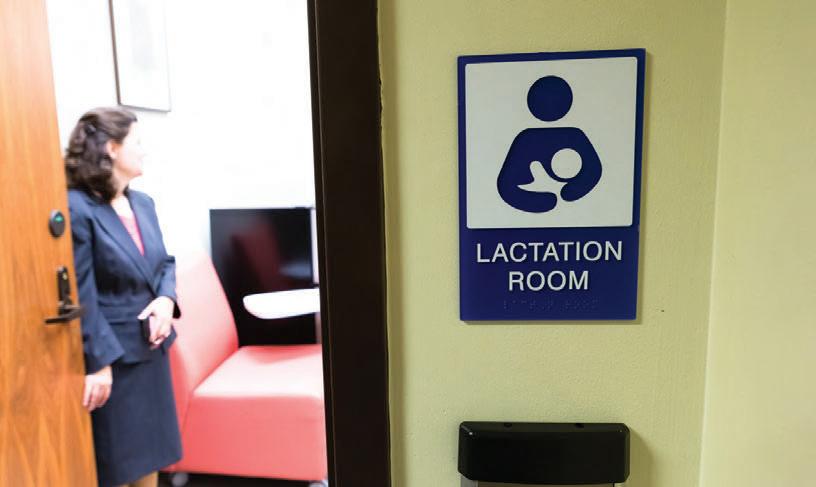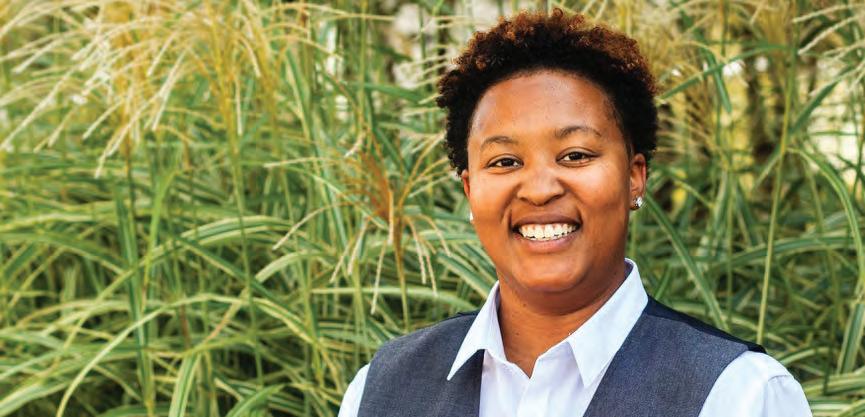
1 minute read
Delivering Better Prenatal Care to Rural Moms
Kandyce Hylick was one of 10 students selected to be a 2020-2021 APHA Maternal and Child Health Section fellow.
Fellows are chosen based on their record of outstanding leadership, scholarship, and commitment to maternal and child health. As a second-year doctoral student, Hylick is pursuing solutions for maternal and child health and women’s mental health issues.
Her passion for promoting women’s health was shaped by a personal experience battling illness following the birth of her second child. But her experiences working as a public health professional in Peru and with rural Georgia health districts on prenatal and postnatal care issues opened her eyes to the disparities in access to health care in urban and rural settings.
At CPH, Hylick is working to implement and evaluate a group-based prenatal care intervention using telehealth for mothers living in Georgia’s rural counties.
“There’s not a lot of research on this, so I’m interested in seeing what prenatal care via telehealth looks like,” said Hylick. “Especially now with COVID-19, it may not be healthy for them to wait in hospitals for smaller issues.”
Hylick sees the APHA fellowship, which begins in October, as an important opportunity to diversify her educational opportunities and learn as much as she can from others.
“When I first joined APHA, I worked with a group within the maternal and child health section that was developing a policy on maternal mental health issues. I had never written policy before, but I thought if this could help me with my ultimate goal of helping women, I’m all for it,” she said. Hylick liked the group’s interdisciplinary focus, an approach she now sees as critical to developing the skills needed to tackle complex public health programs.
“In the United States, especially as a black woman, I’m aware that the maternal mortality rates are very high, so what are the ways that I can be a part in reducing that, how can I make the best difference and continue learning how to be more effective,” she said.
Read more: https://t.uga.edu/6me










